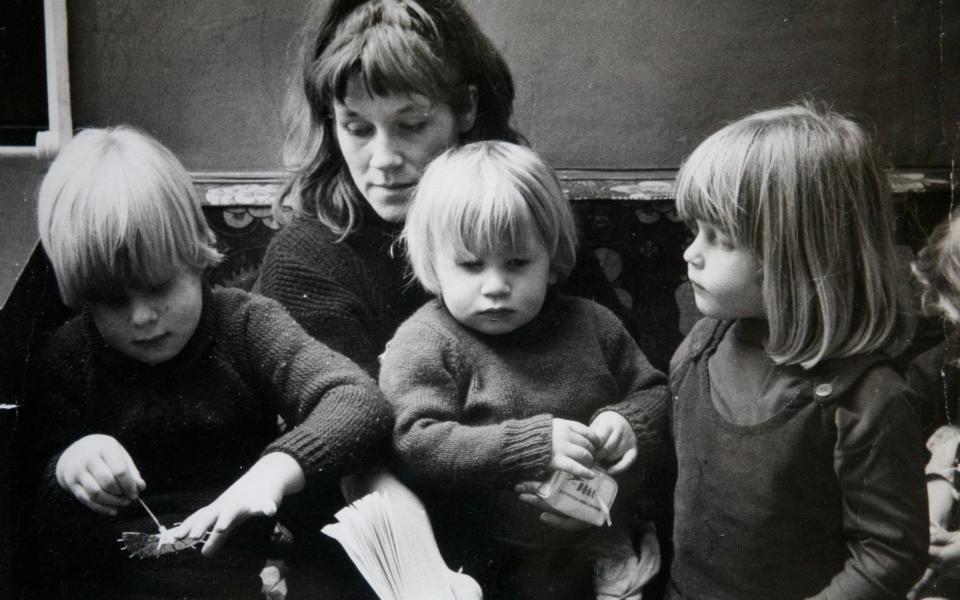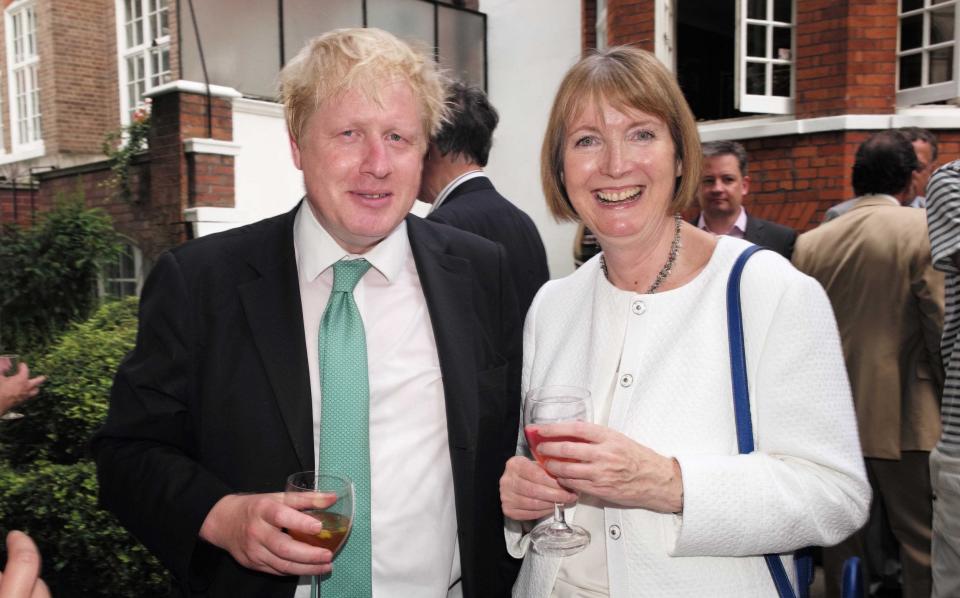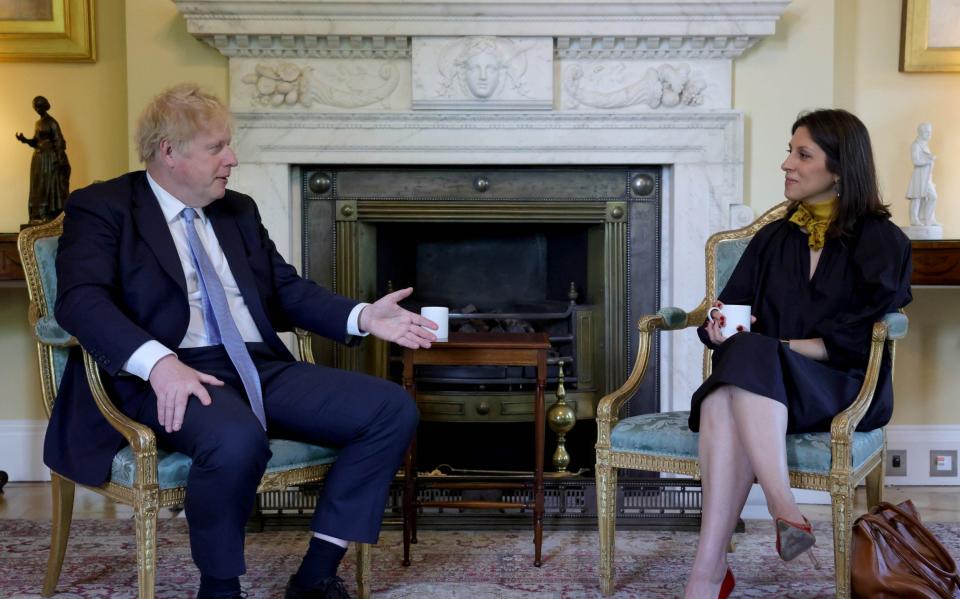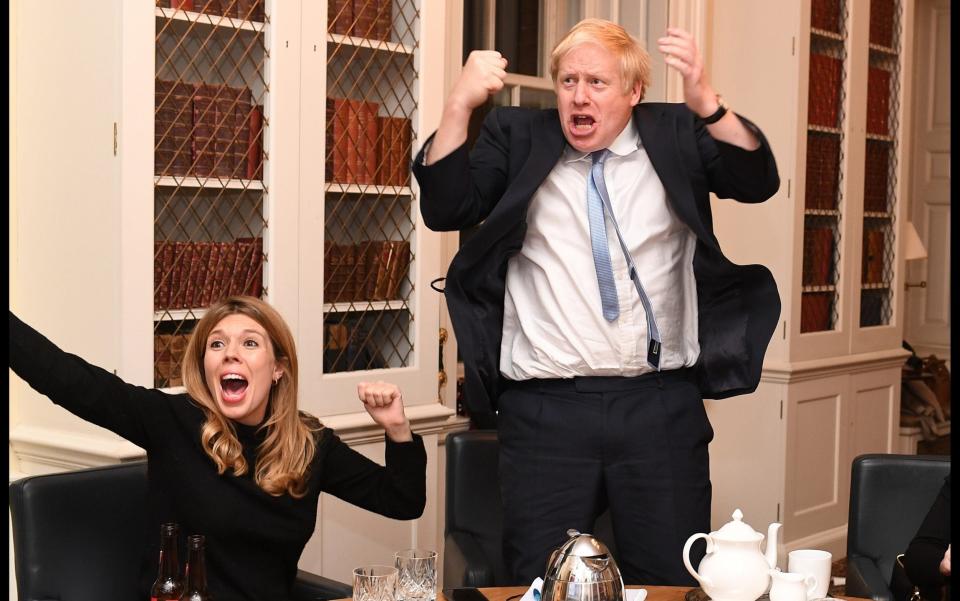Boris Johnson: The gravity-defying rule-breaker whose luck finally ran out

Even now Boris Johnson’s critics insist that he is a buffoon who doesn’t take the grandest office of state seriously. Yet as those who would unseat him have learned, becoming Prime Minister was the culmination of his life’s work, an against-the-odds achievement defying all political norms. He takes it very seriously indeed. He is certainly not about to relinquish it lightly.
In that, his current crisis epitomises a career of astonishing highs and lows, in which he has constantly broken rules or bent them to his own advantage, simultaneously beguiling and exasperating bosses, colleagues, friends, wives and lovers. Again and again he has been cut more slack than anyone else, because again and again his party, publisher or paramour sees that he reaches the parts that no one else can. This eternal bitter bargain, struck by all who come into contact with him, was perhaps best summed up by Conrad Black, owner of the Spectator, who in 1999 appointed Johnson to edit the magazine on the condition that he would not stand as an MP. When, less than two years later, Johnson did precisely that, in Henley, Black fumed that his editor was “ineffably duplicitous”. Even so, according to the Prime Minister’s biographer Sonia Purnell, he was not fired because he “helped promote the magazine”.
Indeed he did. By then he had appeared on Have I Got News For You, carving out a bumbling, jocular character to win over television audiences as no other politician could dream of doing. And it was always a character. Johnson the gravity-defying rule-breaker was also Johnson the shapeshifter, an acute judge of what was popular, able to trim his political sails to the circumstance. Which other Conservative politician, for example, could twice have won City Hall in largely Labour London, leave office with positive approval ratings, then immediately lead a Brexit campaign which the capital voted against 60-40 per cent. “He is serious,” says Andrew Gimson, his biographer and former Telegraph colleague. “A lot of people get distracted by the superficial mannerisms which are meant to distract, and some people get so angry, they feel such moral indignation, that they underestimate him.”

Underestimating him, like the many enemies even in his own party who failed to stop him reaching the top job, has always been a serious mistake.
This, after all, is a man who has never made a secret of his overweening ambition, framed at the age of eight by his admission to his sister Rachel that he wanted to become “world king”. It was ambition only sharpened by the fact that, unlike some within Conservative ranks, his was not a background of effortless wealth and establishment grandeur. He had to win a scholarship to Eton. Proving others wrong has made his successes all the sweeter.
From the start, more than 30 years ago, he realised the enormous potency of fusing journalism, politics and entertainment. “He likes making people laugh. He likes performing,” says Gimson. It was an insight whose power was made clear as Brussels correspondent for this newspaper from 1989, when his scurrilous reporting of EU nonsenses, some of which were true, delighted readers, infuriated rivals and caused real ripples in Britain’s political pond. If the public warmed to his jocular style, it only increased his influence. According to Gimson, his then editor, Charles Moore, appreciated that “he does have faults, but he has a touch of genius”.
It was a genius buttressed by his ability to sustain two apparently contradictory positions - the pro having cake, pro eating cake ideal. “He can keep two hares running - one of his strengths as a journalist is that he was very good at knowing when the story had changed,” says Gimson. “It’s a political skill as well. Most politicians get stuck with an orthodoxy. But politics is not a maths test, it’s about human nature. The general public are better at appreciating that than commentators.”

Thus even the frailties of his character, his amorous incontinence for example, could somehow become strengths, showing that he was not part of a stuffy, patronising “elite”. He developed a talent for escaping sanction for crimes which would have sunk others, a talent which has stood him in good stead to this day.
Of course such escapology works until it doesn’t. Three years after winning his seat at Henley, he was fired from a junior ministerial role by Conservative leader Michael Howard for lying about an affair. Combined with a Spectator editorial that offended the whole of Liverpool, and for which he was made to perform a penitential visit to the city, he lost his chance for running as leader when Howard’s number was up.
Still, his ability to charm even those predisposed to dislike him won a substantial consolation prize in 2008, when he was elected mayor of London. It was during the mayoral campaign that as Katie Perrior, his former public relations chief, recounts, he was accosted in Romford “by a topless man drinking a can of Stella.” Far from dishing out abuse, the boozed-up Essex heckler had nothing but admiration for the Etonian one-time member of the Bullingdon Club. “Boris,” he shouted. “You’re a c— but I still loves ya!”
Re-elected in 2012, Johnson was able to surf a wave of such adulation at the London Olympics, even if they had been awarded to Britain long before his mayoral tenure. And he loved the love. “What people think about him matters a lot,” says one long-time observer. “He’s very sensitive about that.”
His status as the heavyweight outsider was cemented by his return to Parliament in 2015, as MP for Uxbridge and South Ruislip. While David Cameron enthused in public about having his top talent back, there was constant talk of a potential leadership bid. In the end it was the Brexit campaign, the following year, that blew the Conservative Party wide open.

If events of recent days seem tumultuous and unprecedented, that is to forget the chaos of 2016. Then, after leading the Leave campaign to victory, Johnson was stabbed in the back by Michael Gove, casting him into the political wilderness at what was scheduled to be his moment of great triumph. Yet, almost bizarrely, he was soon summoned back from that wilderness by Theresa May, in nature and style his political antithesis, to serve as foreign secretary. In the end his Brexit-powered ascent to No 10 would have to wait for three years.
He achieved some success at the FCO, notably inspiring a harsh and unified international response to Russia’s attempted poisoning with nerve agent of Sergei Skripal in Salisbury. In galvanising allies and coordinating the expulsion of Russian spies and diplomats from embassies around the world he gave a foretaste of the unequivocal support he would offer Ukraine in 2022.
But equally he was made to realise the cost even of small gaffes, when he disastrously told the Foreign Affairs Select Committee that Nazanin Zaghari-Ratcliffe has been “simply teaching people journalism”, contradicting her defence and giving ammunition to her Iranian captors. When, after her recent release, she met Johnson in May this year, she was able to tell him face to face that she had “lived in the shadow of your words for four-and-a-half years, Prime Minister.”

Recent history also serves as a reminder of just how long a seemingly mortally wounded prime minister can hang on. When Johnson resigned as Foreign Secretary in July 2018, few imagined that it would be almost exactly another 12 months before Theresa May would be forced from office. At last, when she was compelled to stand down, his leadership bid for once passed almost without incident.
Since then, however, there has been little else. At first much of the havoc was political, tied up with his efforts to “get Brexit done”. In a moment of high drama, for example, the Supreme Court ruled he had unlawfully prorogued parliament. But there were already hints of the personal distractions that would come to plague his administration. In the same month as that Supreme Court ruling he was referred to the police watchdog over allegations that he had previously used his position as London mayor to “benefit and reward” American tech entrepreneur Jennifer Arcuri, who claimed she was having an affair with him at the time. The investigation ruled that he should have declared an interest concerning Ms Arcuri. A near carbon copy incident emerged this year, when it was alleged that he also floated the idea of appointing Carrie, his now wife, to the position of his chief of staff at the Foreign Office while the two were having an affair.
The snakes and ladders of his term as PM were becoming ever longer and steeper. His apotheosis came in over the winter of 2019-20, when a huge election victory was followed by Britain’s formal exit from the EU.

But almost immediately, like some tragic figure, he found hubris followed by nemesis. By March Covid was sweeping the country. In April, he was fighting for his life in intensive care. “He is a very Greek figure,” says Gimson.
Emerging with his life, Johnson returned to a political career that thereafter seemed to be about managing crises - often not related so much to Covid as his own behaviour and that of his team. In May he backed Dominic Cummings after the infamous Barnard Castle misadventure; in November he ignored a report that Priti Patel had bullied her staff, leading the first of his ethics advisers, Sir Alex Allan, to quit. When he did fire Cummings in the same month he made an apparently implacable enemy. The next spring, Cummings would go on the record saying his erstwhile boss was “unfit for the job”.
But in one of the many accidents of timing which have helped keep him in the job until now, Johnson was by then benefitting from the vaccine rollout, in which Britain led the world. Still, even that triumph could not mask a succession of scandal: a furore over payments for the refurbishment of the Downing Street flat; the insistence that his MPs back their disgraced colleague Owen Patterson; a shambolic speech to the CBI in which he referenced Peppa Pig and made “vroom vroom” sounds. The disorganisation, unpreparedness and willingness to humiliate colleagues by changing instructions and getting them to defend the indefensible - all traits that have led to the current pass - were building.
The first damaging rumours of what would come to be known as partygate, were also surfacing as 2021 ended. The year was capped by a miserable by-election defeat in North Shropshire.
Since then, Westminster has witnessed more than ever the combination of high statesmanship and low farce that have long characterised Boris Johnson’s career. Ukraine brought out the best in him. And by some miracle, he was spared the full wrath of Sue Gray’s partygate report - when it looked sure to finish him - by the unexpected announcement of the Metropolitan Police’s own enquiry. “He was saved by Knacker of the Yard,” Andrew Neil mused at the time. “I think if the Sue Gray report had come out in all its glory, that could well have been curtains for him. But Mr Johnson has turned out to be quite lucky. He has always been lucky.”
Ultimately, though, luck runs out. Chris Pincher, an unexpected drama in a Johnsonian career full of them, saw to that.

 Yahoo Movies
Yahoo Movies 
